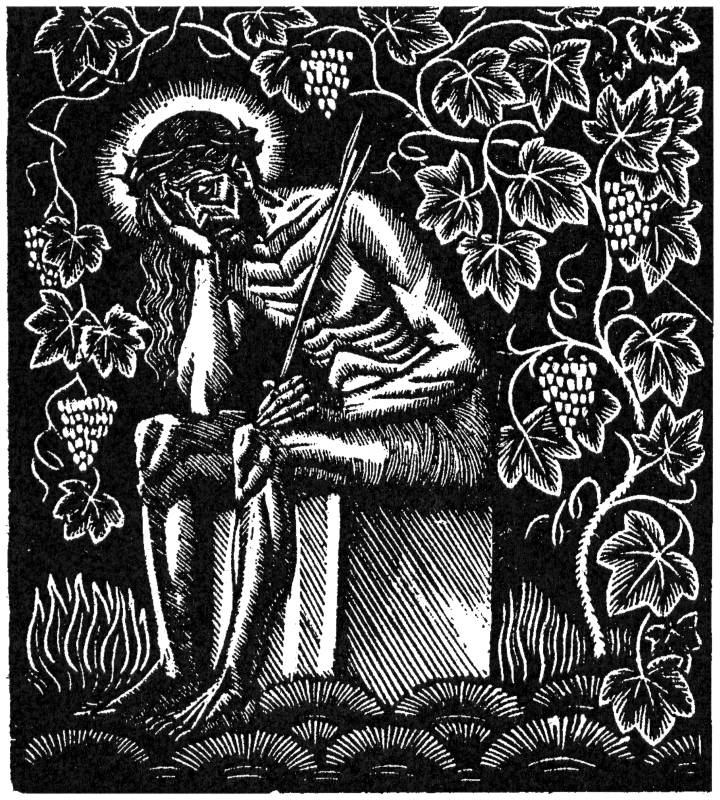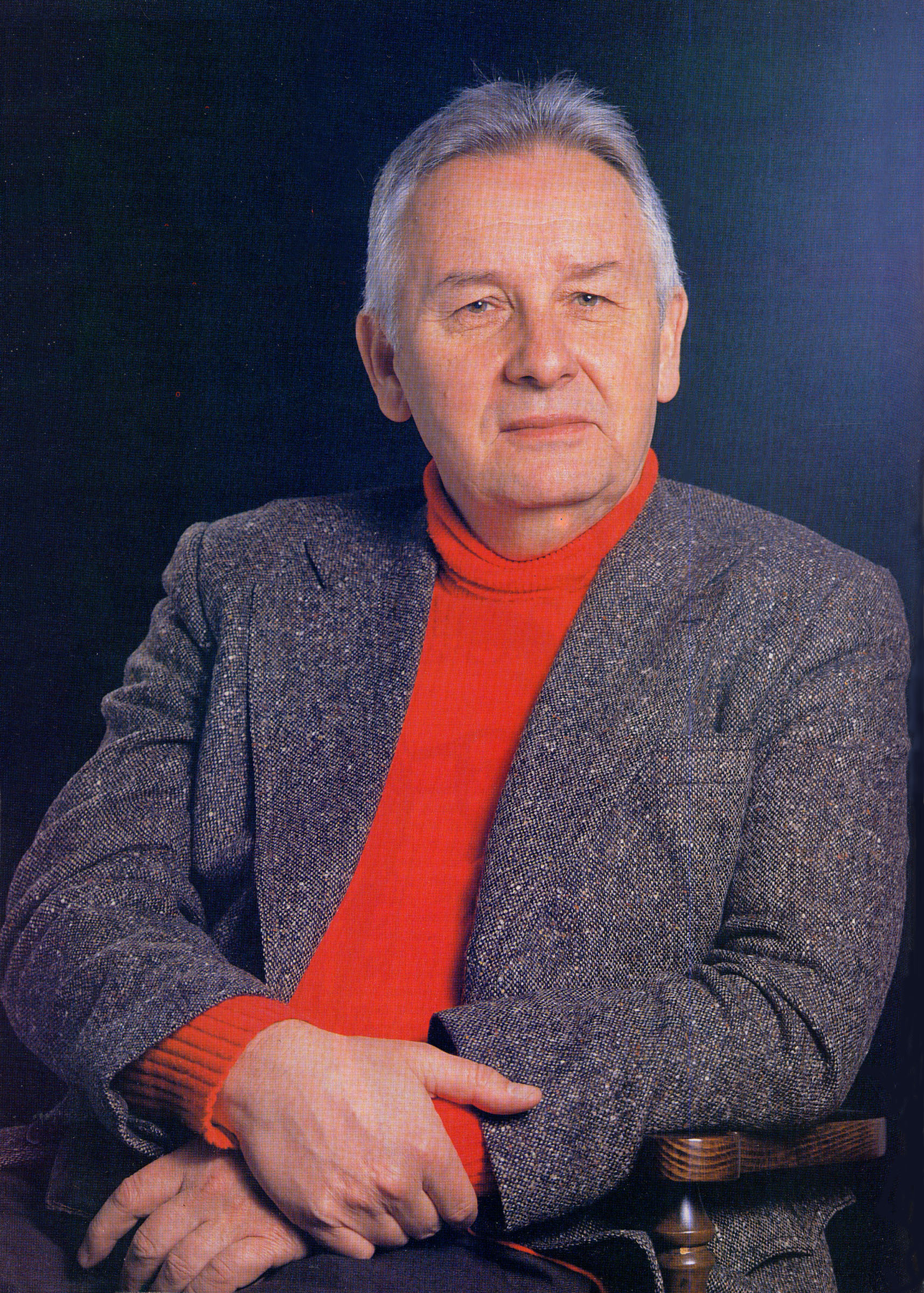Jeremy Simons is an American rabbinical student. I talk about his paper on March of the Living here.
Jeremy wanted me to know that many Jews, like him, are eager for reconciliation with Poles. He shared with me the text of his sermon on this topic. Jeremy delivered this sermon in 2010 in Israel to seminary students on Yom HaShoah – Holocaust Remembrance Day. I was very moved by Jeremy's sermon, and, with his generous permission, that sermon is reproduced below in its entirety.
Most of the images on this page are from the work of Artur Szyk, who was proud to be both Jewish and Polish.
Shoah Reflection
Jeremy Simons
Today marks the commemoration of the darkest chapter in our people's modern history. Two days [ago] marked the darkest day in Poland's short history as a free country. A plane crashed in the woods killing the Polish president, his wife, the leader of every branch of Polish military, as well as dozens of other officials. They were on the way to what was to be a historic event: the commemoration of 20,000 Polish officers executed in 1939 at the hands of the Soviets—an event the Russians blamed on the Nazis and refused to take responsibility for, until now. If you are a Polish Jew, as I am, this is a difficult week. But in one of the articles I read yesterday, I found a sign of hope—a sign so meaningful, at least to me, that it's caused me to change my entire message for today. I'll speak to that in a minute, but let me start with some background.
First, the biography. Like many people in this room, I am a Polish Jew. I also am the product of an interfaith marriage. My father is Jewish, my mother is Catholic. My father is from Boston, my mother is from Kluczbork—a small town in southwest Poland.

Kluczborg
I'll spare you the whole story, but in short, they met in London in their early 20's, got married, moved to the US, and had me. I took my first trip to Poland when I was only a year old. Since then I have been back 12 times, totaling the better part of a year. I've spent this time with my family in Kluczbork, toured the countryside, studied in Krakow, and for better or worse spent a lot of time in Auschwitz. I've marched as a participant in the March of the Living, toured on my own or with friends, surveyed residents of the town for my undergraduate thesis, and visited my extended family that lives two miles from the camp.
As a child, I led something of a double life. Nine months of the year I was a normal kid growing up in Sharon, Massachusetts, a suburb of Boston. Sharon is something like 85% Jewish. I grew up in a town where schools were closed for the high holidays and the cafeteria served peanut butter and matza for one week out of the year. I grew up in a town where even the Christians were a little bit Jewish. But for three months out of that year, when my friends would go off to Jewish camp, I would go off to Poland. They would go to tefillah and I would play in the rectory of the church where my great uncle served as priest—long before I knew what a rectory was or why it was weird that a Jewish kid from Boston would be there.
It wasn't until I turned 16 that I realized these two worlds didn't mix. I had heard about the March of the Living—a pilgrimage trip that marches through Auschwitz and other camps—and I felt I needed to go. I spent the year raising the money and preparing for what I thought would be a life changing experience.

Two weeks before I left my mother attended a parent meeting led by the trip leader, a rabbi. He stressed to parents that their children must come with everything they need. Things like batteries and film are of a poorer quality in Poland, he said. Almost as an afterthought, he added, "besides, you don't want to be supporting their economy anyway." My mother came home from that meeting crying. I realized that night that I existed in two very separate worlds. Going on the trip confirmed this feeling. This was not the Poland of my youthful summers with fishing trips and picnics with the neighbors. No, this was the Poland portrayed as being filled with anti-Semites, a place so dangerous we needed not only armed guards, but Israeli guards to protect us.
There's more overlap between my two identities than one might think. Let's start with food. After meeting my father and learning more about Judaism, my mother discovered she had been keeping kosher. If you ask anyone in her family they will tell you: never serve dairy along with meat unless you want to get sick! This was a hard-and-fast rule in her house growing up and one that you didn't question. It goes beyond mere kashrut. Depending on who you ask, either we're all eating Polish food, or they're eating ours. When I was there in January my grandmother whipped up my favorite dish: fried pancakes made of potato and onion held together with egg. All that's different is the name. We say latke, they say platke.
There's also music. Every year since 1988 the city of Krakow holds a week-long Jewish music and culture festival—one of the largest in the world. Chances are you have never heard of it. Despite my interest, I found out only after literally stumbling into it by accident while studying in Krakow. Let me paint the picture: outside in the middle of the main square of the old Jewish quarter is a giant stage with an equally giant menorah as the backdrop. Klezmer blasts from speakers throughout the square. When I was there in 2003, there were 10,000 other people. Last year the number doubled to 20,000. Above my head was the camera boom for Poland's Channel 1—broadcasting the concert live throughout the country. People scream and dance and, aside from the tourists, 99% of them were not Jewish.
But klezmer and kashrut aren't enough. What do Poles really think? I wasn't sure, so I asked. I constructed my senior thesis around interviewing Jewish participants in the March of the living as well as residents of Oswiecim, the town the Germans call Auschwitz. Eighty percent of the residents of Oswiecim, 80%, reported a favorable view of Jews. One woman said she used to light candles in the cemetery—until they started locking it to prevent vandalism. Sixty percent said they wanted to meet Jews when they came to Auschwitz, to talk about their shared suffering. So what do the Jews think? As part of my research I interviewed a professor of Jewish studies at Jagiellonian University in Krakow who has attempted to run dialogue groups between Polish and Jewish teens. She had a waiting list on the Polish side every time. And every time she tried to meet with groups from the March of the Living, she was given the cold shoulder.
So back to the dual tragedies of this week. Where is the hope? In a few hours 10,000 Jewish teenagers will March between Auschwitz and Birkenau. The article I read yesterday [reports that] they will be wearing black ribbons as a tribute to Poland's tragedy. Based on my personal experience and my research, I can say with near certainty this would not have happened ten years ago when I marched. We have gone from "not wanting to support their economy" to recognizing the Jewish people have a strong claim, but not a monopoly, on tragedy. Since its inception in 1988, every group of marchers has been addressed by a representative of the Polish government; on several occasions it was the now deceased president. On every Yom HaShoah the Polish government has acknowledged the suffering of the Jewish people. This will be the first time the acknowledgement of Polish suffering, of any kind, has been reciprocated.
Before the official march begins, the participants will tour the camp. The state museum of Auschwitz is housed in a series of barracks, each of which has been converted into museum space. Each is dedicated to a different topic. The participants will undoubtedly visit the barrack dedicated to the Jewish suffering, and the barrack dedicated to material evidence of the genocide—that's where they keep the infamous piles of suitcases, eyeglasses, and shoes. But they most likely will not enter the barrack dedicated to Polish suffering and it's a shame they don't. If they did they would see something shocking. On the walls they would see the pictures that have come to represent the Shoah that we all know: the woman shielding her child from the rifle of a Nazi soldier, the man staring blankly at the camera while he sits at the edge of a pit waiting to die, and others. The shock comes in reading the captions: the victims are identified not as Jews, but as Poles. Both sides have found these anonymous pictures and both sides have claimed the victims as their own.
Let us use this Yom HaShoah as a chance to acknowledge that the people in those pictures were not Poles, nor were they Jews. In all likelihood, they were Polish Jews. Yes, our people suffered the most. But our tragedy is not at all diminished by acknowledging theirs. I commend the March of the Living for finally doing exactly that and encourage all of us to follow in their path.











